Child pornography is an extremely serious offense and can be charged in State or Federal Court. Simply defined, it is the visual depiction of sexually explicit conduct involving a person under the age of 18. Any case that involves minors is vigorously prosecuted and even first time offenders face severe penalties, including incarceration if convicted. These cases may result in media attention such that even an indictment can ruin one’s reputation. The attorneys at Neff & Sedacca, PC recognize the ramifications and have the experience to professionally handle these complex cases.
As a result of internet access, today child pornography has become more prevalent. The broadened use of the internet, mobile phone photography and other advances in technology have led to a sharp increase in the number of criminal child pornography cases over the past two (2) decades. In Pennsylvania federal courts alone, what was roughly a few dozen in the late 1990s grew to almost 2,000 cases each year by 2010.
What is Child Pornography Under Federal Law?
Under federal law, it is illegal to produce, sell, distribute, receive or possess an image depicting child pornography which uses or affects any means of interstate or foreign commerce. This includes use of a computer. See Title 18 United States Code Sections 2251, 2252 and 2252A.
Child pornography is generally defined as a visual depiction of sexually explicit conduct involving a person under the age of 18. This includes pictures, films, videos, and digital or computer generated images and depictions of an actual minor, as well as undeveloped pictures, films or videos. A picture depicting a naked child could constitute child pornography. In addition, state laws regarding the age of consent for sexual activity are immaterial. Under federal law, it is illegal to produce, sell, distribute, receive or possess an image depicting sexually suggestive activity involving a minor (under 18 years old).
Prison Terms in Federal Child Pornography Cases
First Time Offenders
Many individuals convicted of federal child pornography crimes are first time offenders from a wide range of socio-economic backgrounds and often include:
- working professionals,
- educators (principals, teachers, etc.),
- medical professionals, and
- law enforcement officers.
If convicted of child pornography offenses, such individuals face significant penalties/fines which have been amended and increased since 2003.
Substantive Statute Changes in Federal Child Pornography Cases
One of the most important amendments in child pornography cases came with the Prosecutorial Remedies and Other Tools to End the Exploitation of Children Today Act of 2003 (PROTECT Act). Enacted by Congress, this amended many criminal child pornography statutes, including 18 United States Code Section 2252A, and drastically increased prison sentences for federal convictions.

